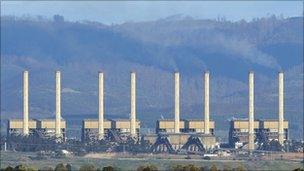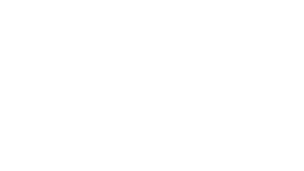Australian Greens' high hopes for polls
- Published

Some voters have been alarmed by the government's decision to drop an emissions trading scheme
In Australia, the Greens are emerging as a potent third political force as the country prepares for a general election on 21 August.
Analysts are predicting that a system of proportional representation will, for the first time, hand the party the balance of power in the upper house of parliament, the Senate, giving it a decisive say in shaping and blocking legislation.
At a campaign launch in Sydney's traditionally conservative Northern Beaches, Dr Jonathan King, who is contesting the federal seat of Mackellar, told the BBC that electoral success would herald monumental change.
"The Greens will give the environmental lobby such power in the Senate that they'll be able to phase out the coal industry, they'll be able to put a price on carbon, they'll be able to stop deforestation - it will transform this country and we could become a world leader (in sustainability)."
The blue-rinse constituency was named after the poet Dorothea Mackellar, an avid student of politics, whose homesick tale of a sunburnt land made her one of Australia's literary giants.
Her deep affection for her fragile homeland is widely shared as scientists continue to warn that the world's driest inhabited continent is becoming increasingly vulnerable to the effects of warmer temperatures and rising seas.
"If we do not address climate change, the impact on Australia would be enormous," explained Lee Rhiannon, a Greens candidate in the Senate.
"Both the federal Labor government and the federal coalition have very weak policies on climate change and the Greens would say it is irresponsible.
"In Australia 40% of our greenhouse gas emissions come from the burning and mining of coal and that is why the Greens put the need to address the future of the coal industry centre stage," she said.
Heckles
The Greens, led by Senator Bob Brown, are in a buoyant mood as they approach what could be a pivotal moment in Australian political history.

Green supporters hope their leaders will be in a position to influence the climate debate
They are cashing in on the electorate's apprehension about a shifting climate, while neither of the major parties appears to want the environment to become a headline issue during the campaign, preferring instead to focus on the economy, immigration and other domestic concerns.
Conservationists heckled Prime Minister Julia Gillard when she announced that a panel of citizens would be convened to shape Australia's climate change policy after an emissions trading scheme was abandoned earlier this year.
"I believe in climate change, I believe it's real," Ms Gillard said during a televised leadership debate in Canberra.
"And I think Australians can...help me, help the nation...work through to a community consensus about a long-lasting solution. But in the mean time, we'll make sure that there are no new dirty power stations built."
Her conservative rival, Tony Abbott, once a strident climate change sceptic, has softened his approach and also promised decisive action.
"We have a clear and definite policy. Not a talkfest, but a clear and definite policy which can deliver the 5% greenhouse gas reduction target by 2020."
Supporters of the Greens are worried, though, that whoever becomes Australia's next prime minister will not take urgent steps to reduce carbon pollution.
Liz Hamper, a Greens volunteer who migrated from Britain in the 1980s, believes that immediate action is needed to protect her adopted home from environmental disaster.
"I want to fight for this country because I love it. And I want it to stay beautiful (but) I am very angry and I look at boat people and I think Australians might well get in the boats and be heading off to Greenland or to New Zealand.
"We'll be looking for somewhere else pleasanter to live and that is distressing."
However, a conservative senator has warned that should the Greens hold the balance of power in the Senate, the chamber would end up being be hijacked by lawmakers keen to pursue a "dangerous agenda" which would damage the Australian economy.